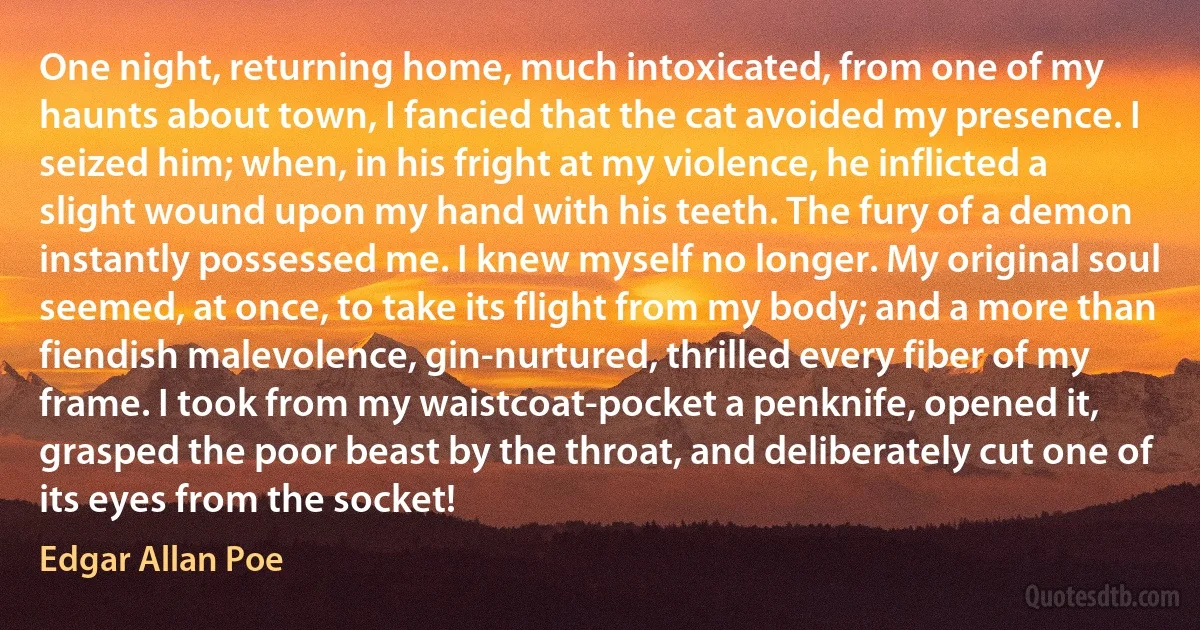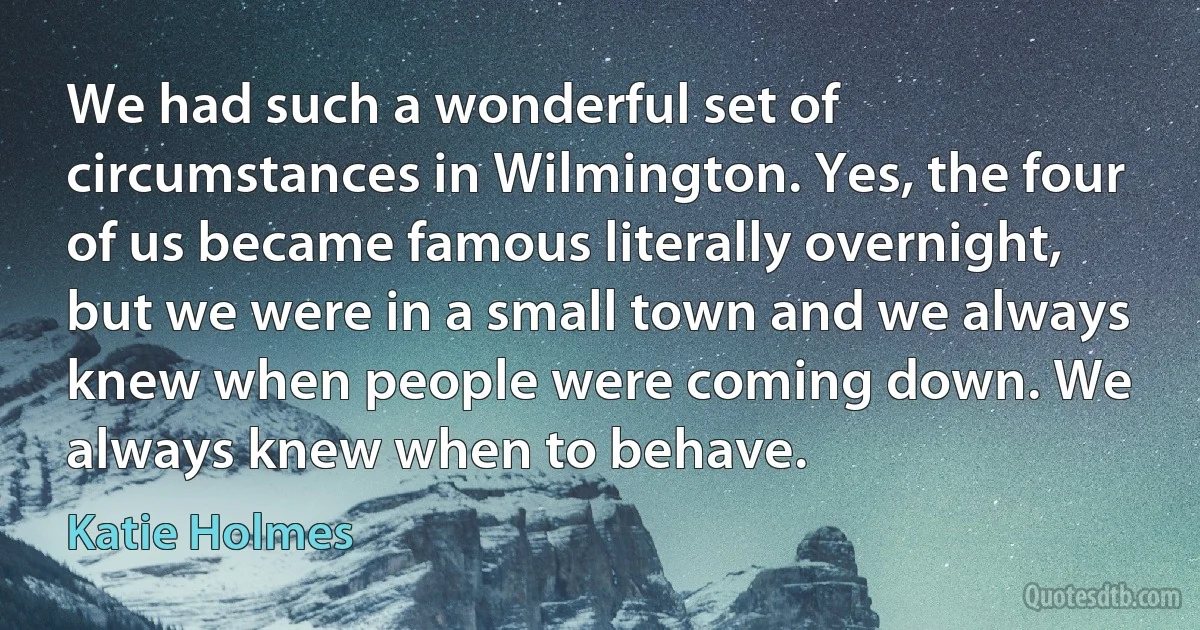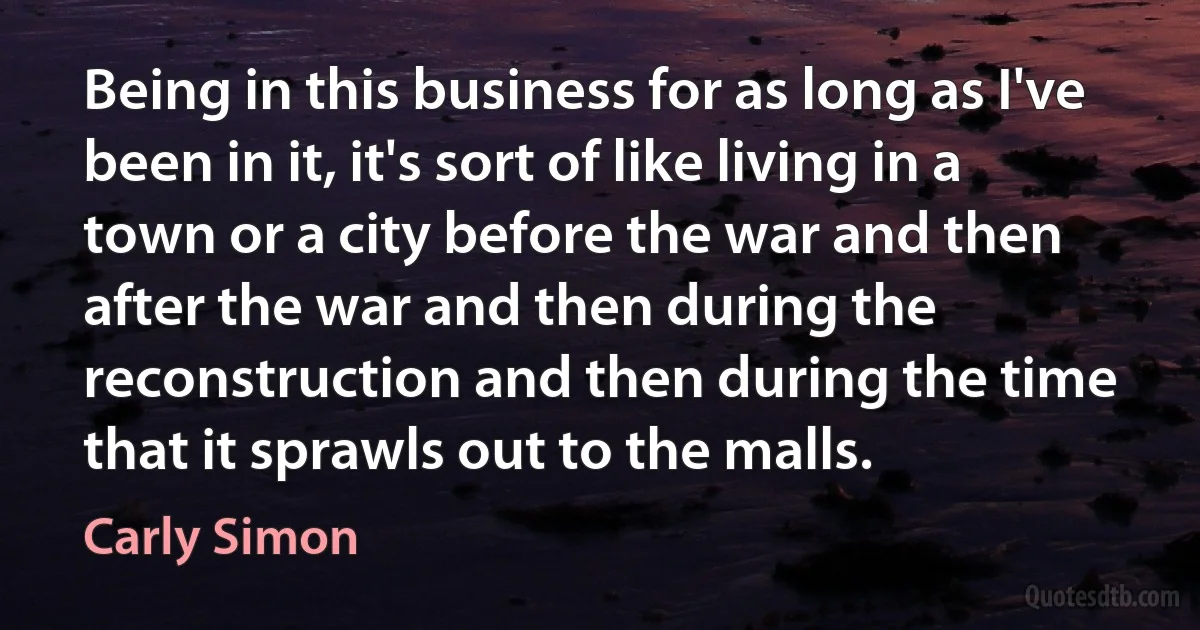Town Quotes - page 15
Famous people come up to me, but I don't know who they are because my sight is so bad. It's always at the pool of the Four Seasons in Beverly Hills when I don't have my lenses in and my glasses are in my room. ... With the number of people I ignore, I'm lucky I work at all in this town.

Helena Bonham Carter
I helped my father who was a house painter and decorative painter. He made stage sets, he made glass paintings, he made everything. I was in the workshop and watched him. So as a child so-called art was not my view. That was, in my opinion, my father's job. But I liked to watch him; he comes, as my mother also, from a very craftsman's background. My father's parents were carpenters. They were also builders partly. They were painters. And several of them were very, active in the theater and all such nonsense, you know. On my mother's side there was much more heavy craft. They were blacksmiths. They made a specialty horse shoes and nails for them.. .So, as a child, my main fun was to watch others working. I loved to walk to the neighboring carpenter's place and up to the neighboring shoemaker in my home town.

Josef Albers
The power to guess the unseen from the seen, to trace the implication of things, to judge the whole piece by the pattern, the condition of feeling life, in general, so completely that you are well on your way to knowing any particular corner of it - this cluster of gifts may almost be said to constitute experience, and they occur in country and in town, and in the most differing stages of education. If experience consists of impressions, it may be said that impressions are experience, just as (have we not seen it?) they are the very air we breathe. Therefore, if I should certainly say to a novice, "Write from experience, and experience only," I should feel that this was a rather tantalizing monition if I were not careful immediately to add, "Try to be one of the people on whom nothing is lost!"

Henry James
It was the morning of April 20, 1999, and it was pretty much like any other morning in America. The Farmer did his chores. The milkman made his deliveries. The President bombed another country whose name we couldn't pronounce. Out in Fargo, North Dakota, Cary McWilliams went on his morning walk. Back in Michigan, Mrs Hughes welcomed her students for another day of school. And out in a little town in Colorado, two boys went bowling at 6 in the morning. Yes, it was a typical day in the United States of America.

Michael Moore
No, Mr. Bush, you just stay the course. It's not your fault that 30 percent of New Orleans lives in poverty or that tens of thousands had no transportation to get out of town. C'mon, they're black! I mean, it's not like this happened to Kennebunkport. Can you imagine leaving white people on their roofs for five days? Don't make me laugh! Race has nothing - NOTHING - to do with this!

Michael Moore
Sacredness is the essence of religion. You know, a great river may become polluted as it flows past a town, but if the pollution isn't too great, the river cleanses itself as it goes along, and within a few miles it is again clean, fresh, pure. Similarly, when once the mind comes upon this sacredness, then every act is a cleansing act. Through its very movement the mind is making itself innocent, and therefore it is not accumulating. A mind that has discovered this sacredness is in constant revolution - not economic or social revolution, but an inner revolution through which it is endlessly purifying itself. Its action is not based on some idea or formula. As the river, with a tremendous volume of water behind it, cleanses itself as it flows, so does the mind cleanse itself when once it has come upon this religious sacredness.

Jiddu Krishnamurti
[Mead saw at least two major problems in dating. First, it encourages men and women to define heterosexual relationships as situational, rather than ongoing] You "have a date," you "go out with a date," you "groan because there isn't a decent date in town." A situation defined as containing a girl - or boy - of the right social background, the right degree of popularity, a little higher than your own.

Margaret Mead
Every time I hit Panama, the place is exactly one month, two months, six months more nowhere, like the progress of a degenerative illness. A shift from arithmetic to geometric progressive seems to have occurred. Something ugly and ignoble and subhuman is cooking in this mongrel town of pimps and whores and recessive genes, this degraded leech on the Canal.

William S. Burroughs



